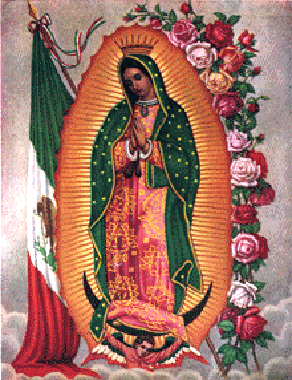 |
|
| El
Arreglo Religioso gives commentary on the peace
accord that was negotiated in June of 1929, which ended the Cristero Rebellion.
The tone of the lyrics is of relief that the fighting is over, and that
the people can now practice their religion openly and receive the sacraments.
There is also a sense of gratitude to don Emilio Portes Gil for his role
in arranging the accord. The structure of the corrido is the traditional
four line stanza with verses of eight syllables. There is also a refrain,
of the same meter, which is repeated after every two verses. The corrido opens with the meta-narrative element in which the corridista calls the attention of the audience who are present to listen to this story. Part One of the corrido opens by explaining how Portes Gil helped to resolve the religious problem. In contrast to the iron fist rule of Calles, the interim president is described as being "pacifista y generoso." There is no dialogue in this corrido, but it does narrate a brief history of the political and social events that led to the rebellion. The narration mentions how the dormant laws of the Reform from the 19th Century were given new vigor after the Revolution. It then describes the religious persecution that ensued during the presidencies of Obregón and Calles. Part Two of the corrido describes how the faith of the people gave them the strength to prevail "en la lucha fratricida." The corrido ends by declaring that peace and liberty of conscience have been restored and that Mexico once again has "su gloriosa religión." |
|
| The
propositionality of this corrido is clearly pro-religion. Although the
refrain seems to be neutral when the corridista says that he can now get
married by the church and by the state, in the remaining stanzas there
are many references that speak in favor of the Church and the faith of
the people. The corrido explains how the enforcement of the anti-clerical
articles of the Consitution led to "una cruel persecución."
In the next two stanzas the corridista shows his displeasure with some
of the government's actions. In 1922 he says that the abuses began, when
Obregón expelled the papal ambassador from the country: "tuvo
principio el mal / al decretar la expulsión / del delegado papal."
He goes on to say that in 1926, during Calles' presidency, intolerance
flourished: "floreció la intransigencia / al declararse la
guerra / a la fe de la conciencia." At the beginning of Part Two, the corridista glorifies the faith of the people: "la fe de los mexicanos." He then says that the people are willing to give their lives, hearts, and souls for their religion. Once again he mentions don Emilio Portes Gil, who worked out the differences between the Mexican government and the Vatican. Unlike the previous presidents who, in the corridista's view, provoked the war, he looks upon Portes Gil as a benevolent leader who resolved the crisis, and restored peace to the country. His description of the church bells ringing, calling the people to mass shows that he sees this as a positive outcome of the conflict. Intolerance has ended and peace has returned: "Cesó la intransigencia, / volvió la paz a reinar, / de libertad de conciencia / ya podemos disfrutar." The corrido ends by invoking the names of the great leaders of Mexico's struggle for independence from Spain, both of whom were priests: "la fe del gran cura Hidalgo / y Morelos y Pavón." For more infomation concerning this corrido, please refer to the Introduction to Corridos de la Cristiada. |
|



